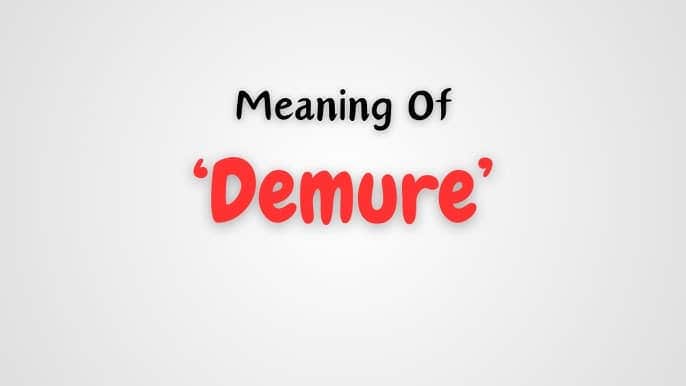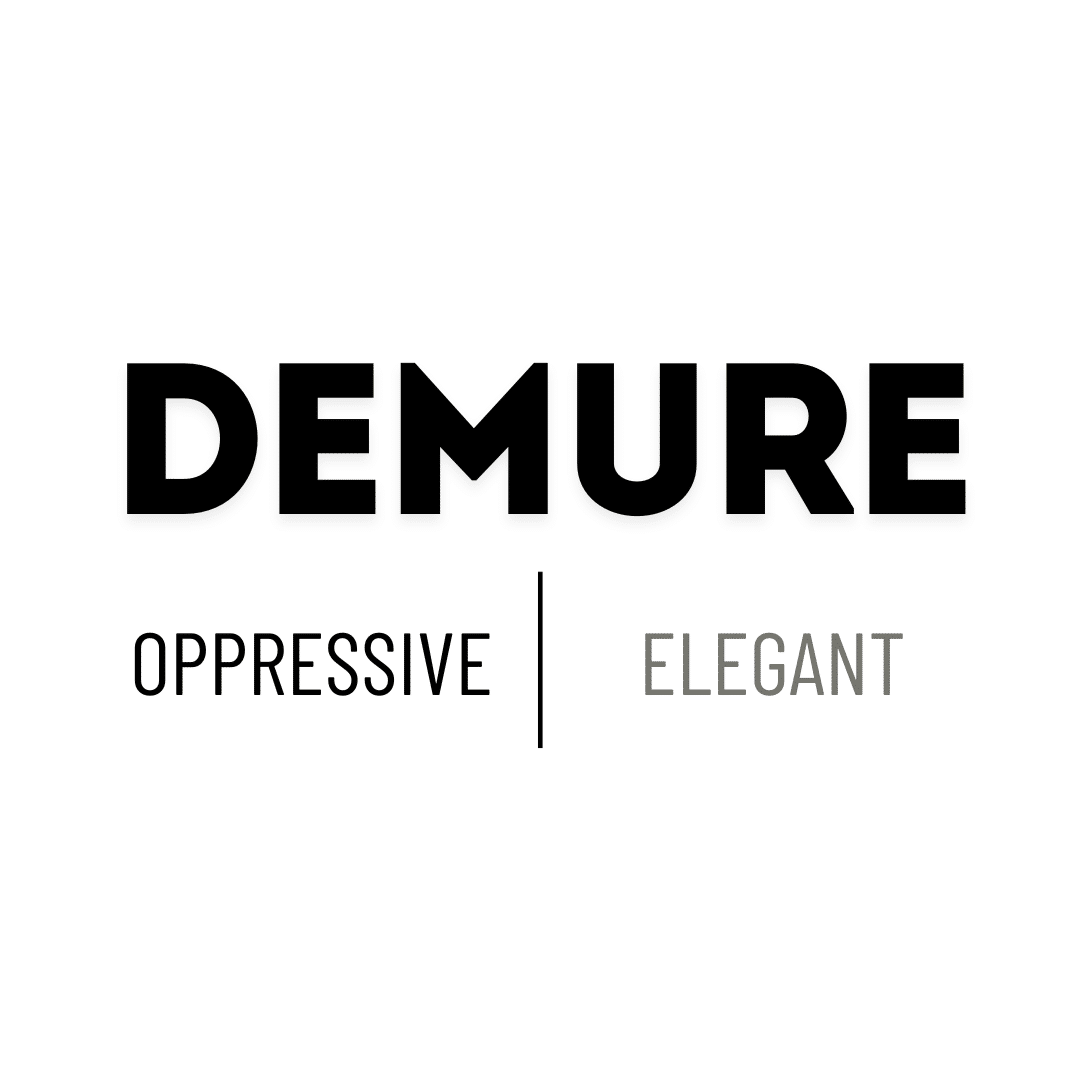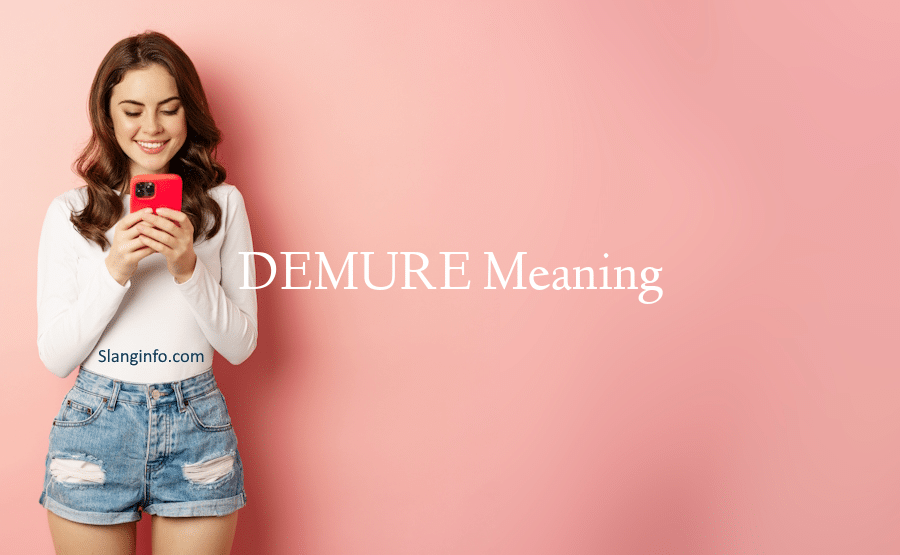Have you ever heard someone describe themselves as “very demure, very mindful” and wondered what on earth they were talking about? Well, you’re not alone! The word “demure” has taken on a whole new life in recent months, thanks to social media trends. Let’s dive into the world of “demure” and uncover how this once-modest term became the coolest new way to describe yourself.
Key Takeaways:
- Traditional meaning of demure: quiet, modest, and reserved
- New slang meaning: mindful, composed, and unbothered
- Popularized by TikTok creator Jools Lebron
- Often used in the phrase “very demure, very mindful”
- Has spread beyond TikTok to other social media platforms and everyday speech
The Traditional Demure

Before we jump into the trendy new use of “demure,” let’s take a quick look at what it used to mean. Traditionally, if someone called you demure, they were saying you were:
- Quiet and well-behaved
- Modest in appearance or behavior
- Shy or reserved in social situations
Think of a classic Jane Austen heroine – that’s the old-school definition of demure. It was often used to describe women who were seen as proper and ladylike.
The New Demure: A TikTok Sensation
Now, fast forward to 2024, and “demure” has gotten a major makeover. This transformation started on TikTok, where creator Jools Lebron introduced the phrase “very demure, very mindful” in a series of viral videos.
In this new context, being demure means:
- Staying calm and composed in stressful situations
- Being unbothered by drama or negativity
- Carrying yourself with confidence and self-awareness
It’s like the cool, collected version of “LBVS” (Laughing But Very Serious) – you’re acknowledging the situation, but you’re too composed to let it ruffle your feathers.
The “Very Demure, Very Mindful” Trend Explained

So, how does this trend play out on social media? Here’s a typical scenario:
- A user describes a potentially stressful or dramatic situation
- Instead of reacting emotionally, they claim to remain “very demure, very mindful”
- This is often accompanied by a calm facial expression or a subtle smirk
For example, someone might post:
“When my ex tries to make me jealous, but I’m very demure, very mindful 💅”
It’s a way of saying, “I see what you’re doing, but I’m too cool and composed to let it affect me.”
Demure Usage Meter
Traditional
Trendy
Current usage leans heavily towards the new, trendy meaning
Why Has “Demure” Caught On?
The popularity of this new use of “demure” says a lot about current cultural attitudes, especially among younger people:
- Valuing Emotional Control: In a world full of drama and stress, staying calm is seen as admirable.
- Irony and Humor: Using a traditionally “proper” word like demure in a new context adds a layer of humor.
- Redefining Reactions: It offers a fresh way to describe choosing not to react emotionally to provocations.
It’s like the opposite of being “sus” – instead of being suspicious or sketchy, you’re cool, calm, and collected.
How to Use “Demure” in Its New Context
Want to incorporate this trendy term into your own vocabulary? Here are some tips:
- Use it to describe your reaction to potentially stressful situations.
- Pair it with “very mindful” for the full effect.
- Add a touch of irony or humor to your delivery.
Example: “When my boss piled on extra work right before the weekend, I stayed very demure, very mindful.”
Remember, like all slang, context is key. It might not be appropriate in formal settings or with people unfamiliar with the trend.
The Future of “Demure”
Will “demure” stick around in its new form, or will it go the way of “GYAT” and fade into internet history? Only time will tell. But for now, it’s a fascinating example of how language evolves in the digital age.
Conclusion: The Power of Linguistic Evolution

The journey of “demure” from a descriptor of modesty to a slang term for unbothered coolness shows us how dynamic language can be. It reminds us that:
- Words can take on new meanings rapidly in the age of social media.
- Young people are often at the forefront of language innovation.
- Slang can offer new ways to express complex emotions and attitudes.
Whether you’re a fan of the “very demure, very mindful” trend or not, it’s hard to deny its impact on current internet culture. It’s given users a fresh, slightly ironic way to express composure in the face of life’s dramas.
So, the next time you find yourself in a situation that would normally ruffle your feathers, why not try staying “very demure, very mindful”? You might just find it’s a FYSA (For Your Situational Awareness) way to handle things with a touch of internet-savvy cool.
Remember, language is a living thing, constantly evolving. Today’s slang could be tomorrow’s dictionary entry. So whether you’re using “demure” in its traditional sense or its new slang context, you’re participating in the fascinating, ongoing story of how we communicate.
Stay curious, stay mindful, and maybe, just maybe, stay a little bit demure.







